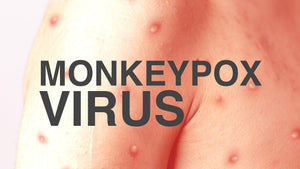
The Important Vaccinations to Take Care of
The subject of immunization vaccinations is a dilemma for many, which hangs between getting them or not. The decision should be fairly simple as these revolutionary drugs have eradicated a number of possibly fatal diseases; years of research and review had led to the innovations of vaccines and 25 gauge needle to administer them. While they may cause discomfort or pain, they have eliminated the inconvenience, suffering, and possible death caused by these diseases. Immunization vaccines are administered at a young age as the probability of catching an illness or infection remains higher in the infantile years. Under no circumstances, should you avoid any of the following vaccinations for your child:
Varicella (Chickenpox) Vaccine Popular opinion would suggest that getting infected by chickenpox at a younger age was much better than later in life since it is comparatively severe in adulthood. However, instead of having to go through the agony of the disease, getting a vaccination is much easier. It is recommendable to administer two doses to every healthy child between the ages of 1 to 12. The first, however, it should preferably be given between the ages of 12 – 15 months and the next between 4 – 6 years.
Hepatitis A Vaccine Caused by a virus of the same name, Hepatitis A is an acute liver disease for which symptoms may manifest in weeks or even months. Advisory in the matter states that you should get your child vaccinated for the same between the ages of 1 – 2 years. The doses are administered in 2 doses with a gap of 6 months. Traveling to certain countries calls for Hepatitis A vaccinations for adult travelers. Headache, soreness, tiredness, and loss of appetite are some of the mild side–effects of the vaccination.
Rotavirus Vaccine Classified amongst highly contagious viruses, the Rotavirus leads to severe diarrhea along with vomiting and fever in infants. In an event where it is left untreated, it may lead to severe dehydration and even death in some cases. A whopping 4,50,000 children lose their lives due to this virus every year. The Rotavirus vaccination is given in 2 – 3 doses recommended at 2, 4, and 6 months, the last if needed. The first one should be given before the child is 15 weeks old and the last before the age of 8 months.
Human Papillomavirus Vaccine (HPV) The Human Papillomavirus is a common virus transferred through genital contact. It can be as common as 1 in every 4 cases. Particular strains of HPV may lead to vaginal, cervical, and vulvar cancer in women whereas, penile cancer in men. Additionally, it may cause genital warts and anal and throat cancer in both sexes. Mild side effects include pain, swelling around the injected area, nausea, dizziness, and headache.
Meningococcal Vaccine (MCV) A serious bacterial illness that may cause blood poisoning or meningitis, the Meningococcal Virus can be conceived by living in closed quarters, inhaling the secondhand smoke of an infected person or sharing contaminated utensils. The vaccine called Menactra must be administered once between the age of 11 and 18 years. College students living in hotels are advised to get one irrespectively. Headache, fatigue, and soreness are a part of the common side effects. Be it 1, 2, or 5ml syringe with needle, you are advised to ensure that your child is being administered the appropriate dosage and well in time so that they have a healthy, happy living.







